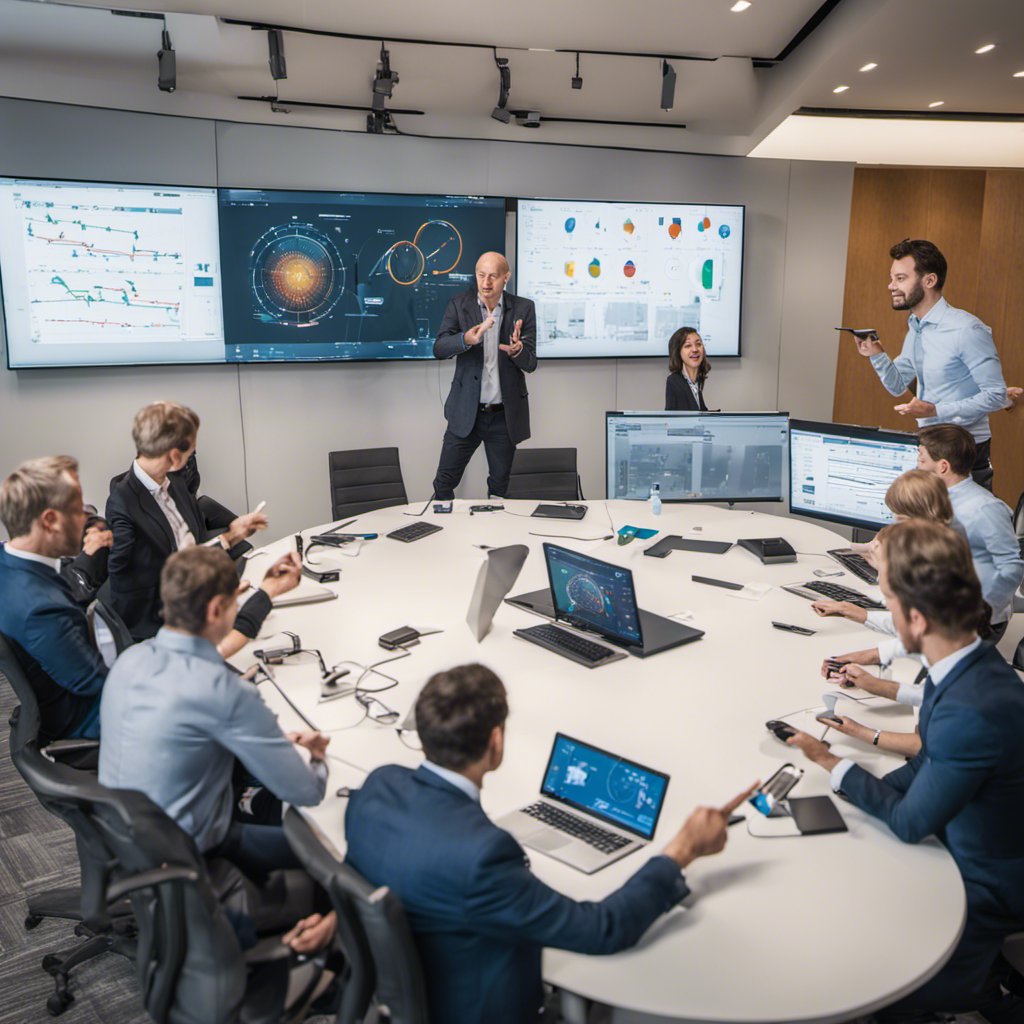The Internet of Things (IoT) has emerged as a revolutionary technological force, reshaping industries and daily life. At its core, IoT connects everyday objects and devices to the internet, enabling them to collect and exchange data, make intelligent decisions, and respond to real-world conditions. This article explores how IoT innovations are transforming various industries, revolutionizing the way we work, live, and interact with our environment.
The Foundation of IoT
IoT’s foundation lies in its three core components: sensors, connectivity, and data processing. Sensors gather information from the physical world, while connectivity technologies like 5G and Low-Power Wide-Area Networks (LPWAN) facilitate data transmission. Finally, sophisticated data processing and analysis extract valuable insights from the collected data. The evolution of IoT from a conceptual idea to a practical reality has been made possible by advancements in these key areas.
IoT Applications in Healthcare
The healthcare industry has been significantly impacted by IoT innovations. Remote patient monitoring and telemedicine have become more accessible and effective, allowing healthcare providers to monitor patients’ vital signs and provide care remotely. Smart medical devices and wearables enable individuals to track their health in real-time, fostering a proactive approach to well-being. Additionally, predictive maintenance for medical equipment ensures that critical machinery operates at peak performance, minimizing downtimes in healthcare facilities.
IoT in Agriculture and Smart Farming
IoT is revolutionizing agriculture through smart farming practices. Precision agriculture uses IoT sensors and data analytics to monitor crop conditions, soil quality, and weather patterns. This data-driven approach enables farmers to make informed decisions about planting, irrigation, and pest control, leading to increased yields and resource efficiency. Livestock tracking and management systems use IoT to monitor animal health and enhance livestock farming practices. Automated irrigation and soil analysis further optimize resource use in agriculture.
IoT’s Impact on Manufacturing and Industry 4.0
In manufacturing, IoT plays a pivotal role in the Industry 4.0 revolution. Predictive maintenance uses IoT sensors to monitor the condition of machinery in real-time, allowing for timely maintenance and reducing downtime. Smart factories leverage IoT for real-time production optimization, resource allocation, and quality control. Supply chain visibility and inventory management have also improved through IoT, enabling businesses to optimize inventory levels, reduce waste, and enhance overall supply chain efficiency.
IoT for Smart Cities and Urban Planning
Smart cities are leveraging IoT technologies to address urban challenges and improve quality of life. Intelligent transportation systems (ITS) use IoT to monitor traffic flow, optimize traffic signal timing, and reduce congestion. Energy management systems and smart grids enhance energy efficiency and sustainability by optimizing energy distribution and consumption. Waste management systems use IoT sensors to optimize collection routes and reduce operational costs. Environmental monitoring solutions leverage IoT to monitor air and water quality, contributing to a healthier urban environment.
IoT in Retail and Customer Experience
In the retail sector, IoT innovations are enhancing customer experiences and operational efficiency. Inventory management systems use IoT sensors to track stock levels in real-time, reducing overstock and out-of-stock situations. Personalized shopping experiences are facilitated through technologies like beacons and Radio-Frequency Identification (RFID) tags, allowing retailers to offer tailored promotions and recommendations. Enhanced customer engagement strategies, driven by IoT data, help businesses build customer loyalty and foster long-term relationships.
IoT Security and Privacy Challenges
While IoT innovations offer immense benefits, they also introduce security and privacy challenges. IoT devices are vulnerable to attacks, and their sheer volume presents a significant challenge for security professionals. Data privacy concerns arise from the collection and storage of vast amounts of personal and sensitive information. Regulatory frameworks, such as the General Data Protection Regulation (GDPR), aim to address these concerns, but businesses must also implement robust IoT security strategies to safeguard against breaches and protect user data.
Emerging IoT Innovations
IoT continues to evolve with emerging technologies. Edge computing and fog computing bring data processing closer to the data source, reducing latency and improving response times in IoT applications. The integration of artificial intelligence (AI) and machine learning (ML) with IoT enhances data analytics and decision-making, enabling IoT systems to become more intelligent and adaptive. Blockchain technology is also being explored for securing IoT ecosystems, ensuring data integrity and trustworthiness.
Ethical Considerations in IoT
As IoT pervades our lives, ethical considerations become increasingly critical. Data ethics, surveillance, and privacy implications require careful examination. IoT systems must prioritize transparency, user consent, and responsible data handling practices. Ethical AI and decision-making in IoT systems are essential to ensure that technology serves human interests without compromising ethics or privacy.
Future Trends and Implications
The future of IoT holds tremendous promise. As IoT expands into new industries and domains, its integration with 5G networks will enable faster, more reliable data transmission. However, ethical and regulatory challenges will continue to evolve in this dynamic landscape. Staying informed and actively engaging with these trends is essential for individuals and organizations seeking to harness the transformative potential of IoT.
Conclusion
The Internet of Things is not merely a technological concept but a dynamic force that is reshaping industries across the board. From healthcare to agriculture, manufacturing, and smart cities, IoT innovations are driving efficiency, sustainability, and enhanced quality of life. However, the rapid expansion of IoT also brings security, privacy, and ethical challenges that require careful consideration. As we navigate this IoT-driven future, the key is to embrace innovation while safeguarding security, privacy, and ethical values.

